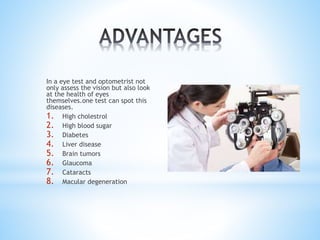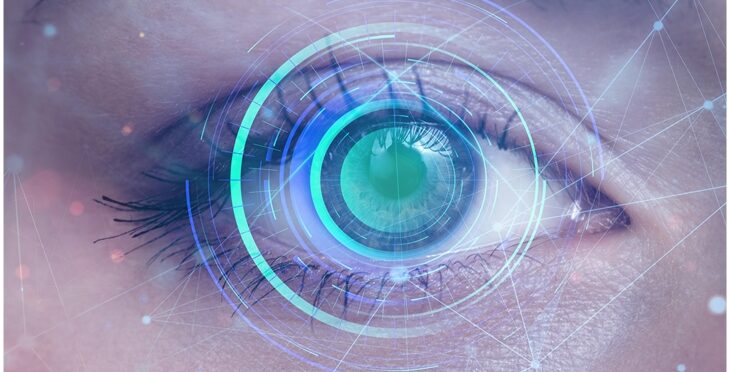Recognizing the Different Eye Conditions Dealt With by Specialized Eye Care Professionals
In the world of eye treatment, specialized professionals play a crucial duty in identifying and dealing with a large range of eye conditions. From common refractive mistakes that affect vision quality to age-related conditions that pose difficulties as we age, the knowledge of these specialists includes taking care of vision-threatening diseases and complex corneal disorders. The intricacies of neurological eye problems present one-of-a-kind challenges that require specialized treatment. As we start this expedition of the numerous eye conditions resolved by specialized eye care experts, it becomes apparent that the detailed web of ocular wellness holds a myriad of fascinating insights waiting to be discovered.
Usual Refractive Mistakes
Refractive mistakes prevail visual conditions triggered by a flaw in the eye's capability to appropriately concentrate light, causing obscured vision. One of the most widespread sorts of refractive mistakes consist of nearsightedness (nearsightedness), hyperopia (farsightedness), astigmatism, and presbyopia. Nearsightedness takes place when the eyeball is also lengthy or the cornea is also bent, creating remote things to show up blurred. Hyperopia, on the various other hand, occurs when the eyeball is as well short or the cornea is too flat, resulting in nearby objects running out emphasis. Astigmatism is defined by an irregularly shaped cornea, leading to distorted or blurred vision at all ranges. Presbyopia is an age-related problem where the lens sheds its versatility, making it difficult to concentrate on close things.
These refractive mistakes can be fixed via numerous techniques, including spectacles, call lenses, or refractive surgical procedure. Eye care specialists play a critical role in detecting and managing refractive mistakes to help people achieve more clear vision and improve their high quality of life.
Age-Related Eye Problems
One of the most prevalent age-related eye conditions is age-related macular degeneration (AMD), a disease that causes main vision loss and can make activities like reading and driving challenging. Cataracts, another common problem amongst older people, trigger clouding of the eye's all-natural lens, leading to obscured vision. Routine eye examinations with specialized eye care professionals are essential for early detection and monitoring of these age-related eye problems to protect vision and maintain ocular wellness as people expand older.
Vision-Threatening Illness
Vision-threatening illness encompass a variety of serious eye problems that have the prospective to substantially affect an individual's sight and general visual function. These conditions present a danger of permanent vision loss otherwise without delay diagnosed and treated by specialized eye care specialists. Some typical vision-threatening diseases consist of glaucoma, diabetic retinopathy, age-related macular deterioration (AMD), and retinal detachment.
Glaucoma is a team of eye problems that damage the optic nerve, frequently as a result of high intraocular stress, leading to outer vision loss and prospective blindness if left unattended. Diabetic retinopathy is an issue of diabetes that influences capillary in the retina, causing vision problems or blindness. AMD is a dynamic condition influencing the macula, resulting in main vision loss. Retinal detachment happens when the retina divides from its underlying cells, leading to abrupt vision loss that needs prompt medical focus (refractive surgeries in al).
Very early detection, routine eye tests, and prompt intervention are vital in managing vision-threatening illness to maintain eyesight and preserve lifestyle. Specialized eye care specialists play an important function in diagnosing, dealing with, and managing these conditions to protect against permanent vision loss.

Corneal Conditions
Corneal disorders encompass a range of problems that affect the clear front part of the eye, called the cornea. These conditions can lead to click for source pain, visual disruptions, and in severe cases, vision loss. One usual corneal disorder is keratoconus, where the cornea thins and protrudes outward into a cone shape, causing astigmatism and blurred vision. Corneal dystrophies, such as Fuchs' dystrophy, lead to steady vision loss due to abnormal down payments in the cornea. Corneal abrasions, typically created by injury or foreign items, can bring about discomfort, soreness, and sensitivity to light. In addition, infections like keratitis can inflame the cornea, potentially bring about scarring and vision impairment if not without delay treated. Treatment for corneal look at this web-site problems differs depending upon the certain problem but may consist of drugs, contact lenses, or in serious situations, corneal transplants. Normal eye exams are vital for very early discovery and monitoring of corneal disorders to protect vision and eye health and wellness.
Neurological Eye Conditions
Neurological eye conditions involve disorders that influence the link in between the eyes and the mind, affecting aesthetic processing and general eye function. These conditions can manifest in various ways, affecting vision, eye activities, and also the sychronisation between the eyes. One common neurological eye condition is optic neuritis, characterized by swelling of the optic nerve bring about vision loss, shade desaturation, and discomfort with eye motion.
An additional substantial problem is nystagmus, where the eyes make repeated, uncontrolled movements, influencing aesthetic acuity and depth assumption. Furthermore, conditions like amblyopia, often referred to as "careless eye," result from irregular visual development in very early childhood years, causing decreased vision in one eye.
Neurological eye problems need specific treatment from experts like neuro-ophthalmologists that have know-how in both neurology and ophthalmology. Medical diagnosis usually involves an extensive eye evaluation, imaging researches, and partnership with neurologists to resolve the underlying neurological problems affecting the aesthetic system. Treatment strategies can include drug, vision treatment, or in severe instances, surgical treatments to manage these intricate conditions properly.

Conclusion
To conclude, specialized eye treatment professionals deal with a large range of eye problems, consisting of typical refractive errors, age-related eye problems, vision-threatening illness, corneal conditions, and neurological eye conditions - refractive surgeries in al. By recognizing these various conditions and looking for proper treatment from eye treatment experts, individuals can maintain optimum eye health and wellness and vision. It is very important to focus on routine eye exams and comply with recommended find out here now therapy plans to preserve and shield one's vision for the future